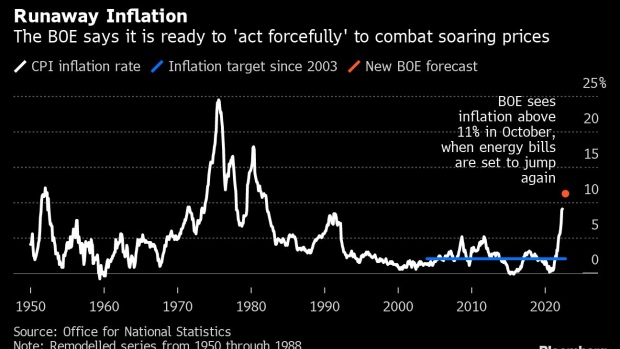
Photo Credit: NATO
Why NATO Is Outdated, Dangerous And Deserves To Be Abolished – OpEd
By Jan Oberg
Let’s look at NATO’s reaction to Russia’s ill-considered and international law-violating military action in Ukraine. From a conflict-analytical point of view, it is reasonable to say that Russia is responsible for the war but that NATO with it reckless expansion against all promises given to Russia and a series of expert warnings is responsible for the underlying conflict.
It can safely be concluded that the Western/NATO response has moved beyond the proportionality principle, beyond rationality and a realistic image of the world and its own role in it:
NATO leaders express limitless hatred of everything Russia; historically hard and time-unlimited economic sanctions have been imposed – using the illegal method of collective punishment; weapons for an estimated US$ 60-100 billion will be pumped into Ukraine to defeat Russia there. NATO has added US$ 350 billion in military expenditures since the US-instigated regime change in Kiev in 2014 and, since then, prepared Ukraine for a role in NATO. The 2% goals is now a floor, not a ceiling. Forward reaction forces shall increase from 40 000 to 300 000; US troops in Europe up to 100 000. Russian reserves in the West – some US$ 300 billion – are frozen and will likely be stolen and used to rebuild Ukraine. Russia is, for all practical purposes, cancelled from Europe.
According to the UN High Commissioner for Human Rights, 310 000 have died in Syria but less than 5 000 in Ukraine. The US War on Terror has cost a million lives and forced 35-50 million to become refugees and IDPs.
We seem to have to do with an outdated militarist institution that has proven itself unable to create peace – having tried to since 1949 – and which violates it own funding Treaty on a daily basis.
TFF Associates and myself are working on a larger report – ”The Abolish NATO Catalogue” – with articles, videos and arguments on why it is time to abolish it and create something entirely new. We also argue that today’s post-Ukraine NATO is the single most dangerous institution on Earth.
Western decision-makers and mainstream media seem to see their role as simply selling NATO. They seldom, if ever, discuss NATO as such, its strong and weak sides. An examination of a 73-year old institution would be natural, like for decades there have been debates about how to reform the United Nations. But criticism of NATO as such is hard to find.
NATO is consistently called a “defensive” alliance. One must indeed wonder how the systematic use of that particular adjective across all mainstream media has come about since there exist no valid definition of defensiveness that could possibly include NATO.
Likewise, it’s taken for granted that NATO has contributed to peace. But what kind of peace? What other factors have contributed to it – and is it at all meaningful to use the word ’peace’ about today’s Euro-Atlantic space?
NATO simply exists. It’s a saviour. Like God exists in the lives of the believers who may then expect salvation. Its fundamentally militarist values come across to the taxpayers (who finance it) as benevolent and innocent in its role as the Creator of stability, security and peace – to repeat the Secretary-General’s unsubstantiated mantra at virtually every press conference.
While there can be – and has been – intelligent philosophical debates about what a world without God looks like, there has not yet been a broad discussion about what a world without NATO might look like.
Or, to put it differently, NATO has become a kind of God to those who believe in it and there is a scholarly, media and political priesthood that propagates it to such an extent that meaningful, rational analyses of what it’s good and not so good at hardly exist.
TFF Associate David R. Loy has a more philosophical – Buddhist – approach to militarism and writes in “Why We Love War”:
“If our modern, secularized world is plagued by an unacknowledged and therefore misunderstood sense of lack, it is not surprising that war too continues to be so attractive, even addictive. War can give us the meaning we crave, because it provides a reassuring way to understand what is wrong with our lives.
War offers a simple way to bind together our individual lacks and project them outside, onto the enemy. They are evil because they want to hurt us. Since we are merely defending ourselves, we can feel good about what we do to them. The karma that results is not difficult to understand: the cause of each war is usually the previous one, at least in part.
If war is a collective response to our collective problem with lack, we cannot expect war to cease until we find better ways to address that basic spiritual problem.”
The contemporary West’s unreflective belief in violence as the solution – or militarism as the new secular religion promising salvation – and our culture’s psycho-political need for constant enemy imaging often by sheer projection of one’s own dark sides – must come from somewhere. Perhaps the lack of meaning and the need for standing together around some values and some policy. Just think “Ukraine” which has become the single event that brought the otherwise rather declining and fragmented West together, at least for a short while.
This is of particular relevance also because NATO is an alliance based on nuclear weapons; it’s an alliance that is able to wipe out humanity many times over – that is, do harm way outside its circle of member states. It is also an alliance that reserves for itself the right to be the first to use nuclear weapons even against a conventional attack.
And it’s an alliance led by the United States with a global Empire, human history’s largest military expenditures – some 40% of the world’s military expenditures – which insists on being the unchallenged global power with 600+ military basis in 130+ countries and special forces in even more.
In other words, while there is a tendency to see NATO as a predominantly Euro-Atlantic alliance because all its members minus one are European, the alliance is a de facto global military power-projecting institution because of its leader’s global power reach and imperial ambitions. We see how, at the moment Art 5 is de facto applied to Ukraine, a non-member of NATO. And at NATO’s Madrid Summit and elsewhere in NATO, China is appointed the Enemy # 1 in the future.
Surreal or bizarre as it may seem, the idea that NATO might be a party to a conflict with Russia is also pretty foreign to itself and most of its advocates. The media choreography is simple: As a principle, NATO has never done anything wrong and continues to only promote “security, stability and peace” while Russia and its president act as a constant nuisance. It’s rather much like a homeowner who is not in a conflict with a thief – a criminal – but has to guard himself and his family against the thief’s evil plans.
Compared with being in a conflict, this self-understanding relieves the presumed innocent from any sense of responsibility.
From that stems the symbolic idea that NATO is a kind of home insurance. However, an insurance is paid only after the unwanted event and the destruction it wrought. Insurances do not prevent the accident, so this is pure nonsense but also never addressed.
Contrary to the pervasive positive but unreflective mainstream concepts and images of NATO that are disseminated virtually on a daily basis to millions, there is absolutely nothing sacrosanct about that old institution. And in contrast to the pious believers’ attitude to their God, NATO can and should be criticised. And replaced.
Let’s discuss the post-NATO world.
Prof. Jan Oberg, Ph.D. is director of the Transnational Foundation for Peace and Future Research, TFF and a member of the TRANSCEND Network for Peace Development Environment. CV: https://transnational.live/jan-oberg
https://transnational.live
This article originally appeared on Transcend Media Service (TMS)









